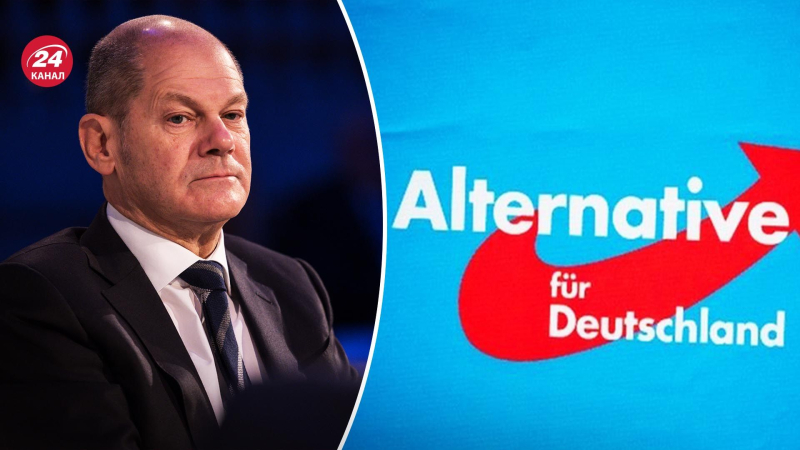< img _ngcontent-sc115 itemprop="contentUrl" src="https://24tv.ua/resources/photos/news/202312/2453323.jpg?v=1702649578000&w=760&h=428&fit=cover&output=webp"> Distrust of both government and support is growing in Germany right-wing “Alternative for Germany”, sympathy for Russia. This could significantly affect the upcoming regional elections. About this 24 Channelsaid senior analyst at the Western Institute of Poznan, Viktor Savinok. He noted that it will now be more difficult for politicians of centrist parties to keep right-wing radicals in isolation. Despite the fact that the views of AfD members are not homogeneous, some of them actually travel to Russia or go to the Russian embassy for “Victory Day” in the company with Gerhard Schröder, whom the Kremlin had previously “bought” with a position in Rosneft. It is precisely the voices of such representatives of the Alternative for Germany that are the loudest. “They say that the policy of sanctions (against Russia – Channel 24) is wrong because it hits the German economy. They also call the sanctions an “economic war” declared by the West on poor Russia. On the other hand, they say that the armed conflict in Ukraine cannot be resolved by military means,” the analyst recounted the party’s theses. Sarah Wagenknecht's movements. These three political forces are capable of gathering “dissatisfied citizens” on the German streets who protest “for world peace.” According to polls, the Christian Democrats will win the next parliamentary elections with a result of 30 percent. Olaf Scholz's Social Democratic Party will receive 15 percent of the vote, having lost about 10% of support since its election. Scholz's coalition partners, the Greens and the Free Democrats, have support of 14% and 5.4% of voters, respectively. Together with the two largest German parties, this is almost 60% of the German electorate. Under these conditions, the Alternative for Germany gains 21.6% of the vote, becoming the second most popular party in Germany . Support for “Levitsa” reaches 4%. However, with the advent of Sarah Wagenknecht's movement, which broke away from “Levitsa”, the situation may change, because 14% of the votes are already predicted to favor policies towards Russia. The bulk of the AfD electorate lives in the territory of the former “East Germany,” which was under the control of a regime friendly to the USSR before the fall of the Berlin Wall. In 2024, regional elections will be held in Saxony, Brandenburg and Thuringia, and Alternative for Germany can gain about 30% in each of the states. Poll on the elections to the European Parliament. The districts where the AfD wins/Wahlkreisprognose “This will significantly complicate the formation of governing coalitions for parties of the broad center are indicated in blue Accordingly, they will have to resort to creative solutions in order to keep the so-called “firewall” (fire wall – Channel 24) from the AfD and isolate it at the level of the federal states,” Savinok suggested. 
Growth of the Alternative for Germany “
What percentage of Germans support centrist parties
What risks does the strengthening of the ultra-right bring
What is happening in Germany today
< li>At the end of 2023, the coalition in the Bundestag had difficulties passing the 2024 budget. They were due to the fact that the German Supreme Court prohibited the redirection of 60 billion euros from the fund to overcome the consequences of covid and “green” programs.
The pro-Russian party in Germany is gaining popularity: how dangerous is this for Ukraine?
65

